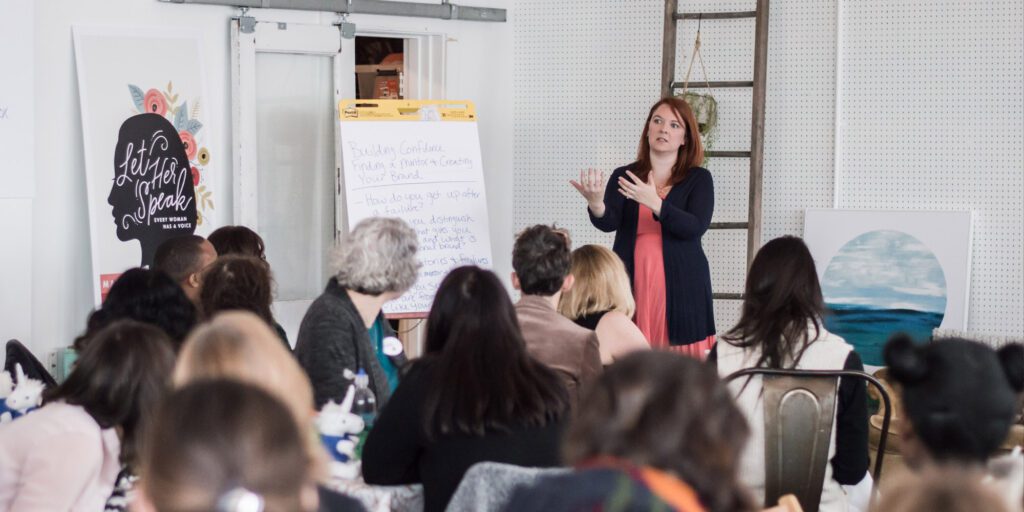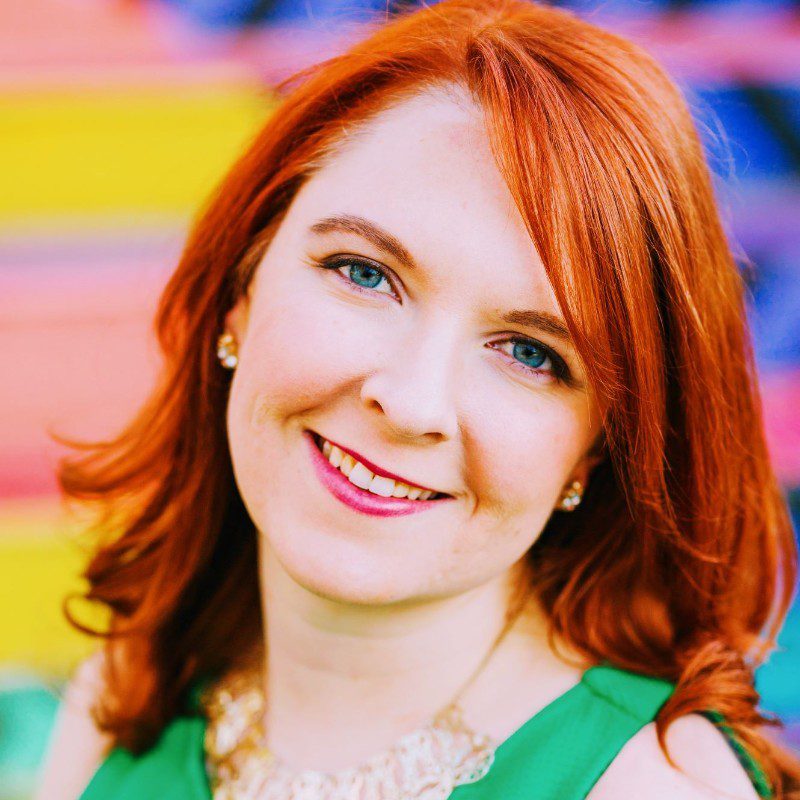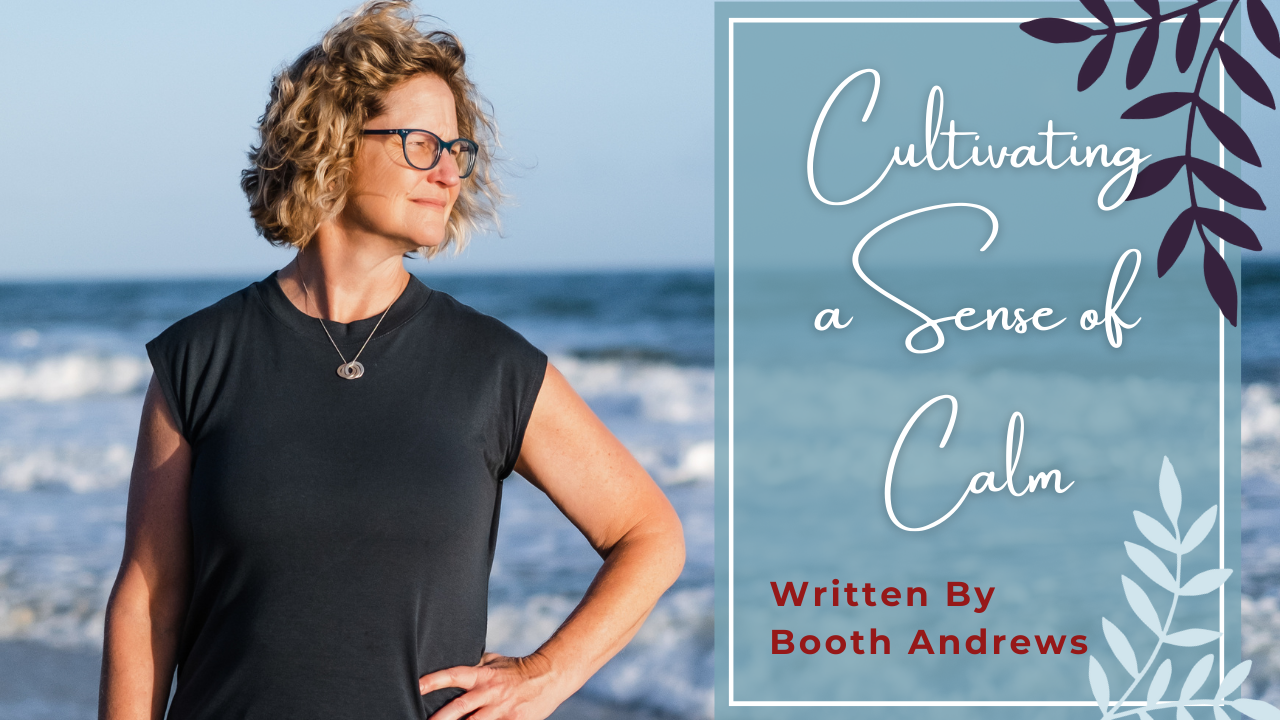The 6 Reasons Why I Started Let Her Speak
Written By: Catherine Porth

The 1st Let Her Speak Women's Summit | March 2018
Since starting Let Her Speak a little over 5 years ago, one question I get asked over and over is what prompted me to start a movement. The background and explanation for my “why” is too complex to answer in a short sound bite (which I know is usually what interviewers are looking for). So a few years ago I started telling people that I founded the organization for six reasons and would then proceed to only provide one of those reasons in my answer.
The truth is, I arbitrarily selected the number six at one point and never actually sat down to count out my reasons why. That is until recently when I took a moment to look back at every experience and path that led me to my “a’ha moment” of creating an organization that provides support for women to change the world. So here they are, in no particular order, my six reasons for founding Let Her Speak:
Reason #1: Women supporting women is so much more than a hashtag
I’m a part of the generation that started almost every major social media platform in existence. I remember my freshman year of college being peer pressured into getting a Facebook account and needing to have a college email to sign up. From the very beginning, I was skeptical about whether social media platforms would end up being a net positive or negative (and honestly, I still haven’t made up my mind on that).
One of these skepticisms was whether it really helped foster and strengthen connections among my peers or if it just made us all lazy. I still have letters that were mailed to me by my high school friends while we were away at college during our freshman year. But once we all got on “the Facebook”, those letters stopped. What was the point when we could keep up with what everyone was doing through their status updates?
I think we can all agree that there is a different level of connection that happens when we exchange letters, phone calls, or in-person catch-ups rather than commenting on posts. This desire to remind women, who are already naturally gifted at building relationships, of how important it is to invest in supporting each other beyond hashtags, reels, stories, and posts was one of the driving factors for why I built Let Her Speak the way I did. In fact, I didn’t even start our own social media profiles until 1.5 years after our first event.
“I truly believe we are in the middle of a societal shift in how we define what makes a great leader, but we need more programs, opportunities, and resources for those that are stepping up to be the leaders the modern world requires.”
Reason #2: The world needs more diverse voices and better leaders
This reason was something I didn’t fully understand until I started doing deep strategy work on what Let Her Speak needed to become during the pandemic. I think it was something that I knew instinctually but didn’t have the data to support. Data enablement has always been a huge aspect of every decision I make as it relates to this organization. From the interviews I conducted when first building the concept to the ongoing studies I continue to administer – every aspect of every decision has data attached to it.
There has been a growing amount of research done around the broad topics of diversity and leadership. And what those studies have shown is that groups, communities, organizations, and companies do better when different perspectives are invited in. Not only that, but more and more we are seeing that leaders who utilize both feminine and masculine styles of leadership are able to be more effective (Note: this isn’t an argument about men vs. women leaders, but rather different styles of leadership on a spectrum). I truly believe we are in the middle of a societal shift in how we define what makes a great leader, but we need more programs, opportunities, and resources for those that are stepping up to be the leaders the modern world requires.
Reason #3: Women need to be empowered outside major cities
I grew up in a small town in southeast Iowa. For every Iowan, it’s pretty common when we travel outside the Midwest for people to confuse our home state with Idaho or Ohio. Most don’t even know where our state is located (I once had someone ask if it was in the Northeast). I know all too well what it feels like to be someone from a place most forget exists or know nothing about.
When I moved to Knoxville in December 2016, I experienced a similar frustration of being from the other Tennessee “-ville” city. While there are plenty of organizations supporting women in NYC, Chicago, Los Angeles, Atlanta, and other major cities – the fact is those of us in secondary and tertiary cities, and even more so in rural communities, typically have to resort to virtual programs and online communities. What’s even more frustrating is that living in a smaller community means there’s a much higher likelihood of being able to impact change and have a voice – but that requires building a support system. That’s why I have made a commitment that as Let Her Speak expands, we will be focusing on parts of the country that are overlooked with few resources for the women residing there.
“I know all too well what it feels like to be someone from a place most forget exists or know nothing about.”
Reason #4: Change happens when we truly see others and allow others to see us
Storytelling is one of the oldest traditions in human history. It allows us to make sense of our world, to connect with others on a deeper level, and to express ourselves. In fact, research shows that women have a greater impact on storytelling within their families than men. Despite the importance storytelling has in our lives and in forming meaningful relationships, we often don’t find many opportunities to share our stories when meeting new people.
My initial idea for Let Her Speak was sparked by a hypothesis. That hypothesis was that if I created a space where women were encouraged to share their stories without judgment, it would serve as a catalyst for deeper and more meaningful connections among women who may never meet in their day-to-day lives. Those connections could provide the social capital that is so important for women to find job opportunities or grow a business. I knew the standard networking model most of us follow didn’t necessarily work for how women naturally connect, but I didn’t exactly know why.
About a year after my first event, I found a study conducted at Northwestern University that explained exactly why (again – I love having data). The study was around the upward mobility of recent MBA graduates in Corporate America. Researchers looked at relationship development and networking activities between men and women in their graduate program. What they found was that if women focused on networking activities that are identical to their male counterparts, they often failed to get top job offers equal to their peers. However, women who also had a tight inner circle of well-connected, diverse female friends found themselves in much higher-placing jobs – many times outpacing their male colleagues. While this study was specific to MBA graduates, it’s not a stretch to see how these findings could be applied to many other areas where connections and networking play a huge part in one’s success.
Reason #5: The toxic programming women are fed is very real and needs to stop
Anyone who knows me well knows I can stand on a soapbox for hours talking about how harmful a lot of aspects of patriarchal values are on our culture, society, and way of life. This harm shows up constantly in our everyday lives. It shows up when a woman is called “bossy” or “difficult” when she’s too assertive. It shows up when women are attacked online for looking, dressing, or acting outside our society’s definition of femininity. It shows up when a woman starts doubting herself and her abilities because she doesn’t meet all 20 qualifications for a job or opportunity. And it shows up when women are pitted against each other because we’re led to believe there are only so many spots available to us at the top.
This is programming that starts when we are very, very young and persists throughout our lives. Some of it is so subtle or commonplace that you may not even notice it. For example, at an early age girls join the Brownies and boys join the Cub Scouts. When you dive into the history of these two organizations and the lore of brownies versus wolfpacks, you begin to see that from an early age girls are taught to be quiet, to not make a fuss, to do work for others, and to ask nothing in return. After all, a brownie is a mythical creature that comes out at night to do housework but is never seen or paid. Boys on the other hand are taught the importance of being a part of a pack and to show up as a valued member of the collective.
Working to unravel these toxic values and norms is no easy task. It’s next to impossible to accomplish at a large scale. That is why I chose to start small and stay small (for now). This type of work takes time and takes a lot of intention, consistency, and care. I’ve attended a lot of conferences for women. I’ve listened to the keynote speakers deliver their inspirational talks on stage. I’ve sat in the audience among hundreds of intelligent, engaged women listening intently. And I’ve observed each of us walking away barely getting to know the women who sat beside us and returning to our lives – that toxic programming still remaining. We can do better than that.
“My hope is one day, in my lifetime, the majority of women in the world will no longer have to claim the title of “survivor” as a rite of passage for being a woman.”
Reason #6: I’m a survivor in more ways than one
I haven’t publicly shared a lot about my own story. It’s too much to unpack in this article. But I will say my passion for doing what I do didn’t come out of nowhere. I’ve experienced bullying from a young age through adulthood. I’ve been in abusive relationships where I’ve completely lost who I was and had to build myself back brick-by-brick. I’ve experienced bias and sexual harassment simply for being a woman. Sadly, I know my experiences (and much worse ones) are shared with millions of women across the globe.
Rather than moving through life feeling helpless and angry, I decided if I could figure out a way to change the paradigm of our collective experiences, even on a small scale, I would commit to giving it my all. And that’s what I’ve done since my “lightbulb moment” in early 2017 when I came up with a new concept to advocate for women and share our stories. It was a calling I couldn’t ignore. My hope is one day, in my lifetime, the majority of women in the world will no longer have to claim the title of “survivor” as a rite of passage for being a woman.

About the author » Catherine Porth
Catherine Porth is the Founder & Chief Advocate of Let Her Speak. Her mission is to improve and grow opportunities for women, one inspiring story at a time. If you are interested in learning more about or getting involved in our community, contact her at catherine@letherspeakusa.org.
Instagram: /letherspeakusa
LinkedIn: /catherineporth
Share This Story, Choose Your Platform!
More From Our Blog
The most accessed resource I have ever created–in both downloadable and podcast format–is called the 7 Tips for Calm. I created it in the early days of the COVID-19 pandemic. I remember being in my kitchen, shortly after the lockdowns began, observing how calm I felt in the midst of this “once in a lifetime” event. And then I thought “OH! I KNOW HOW TO DO THIS.”
I haven’t been in a committed partnership (or intimate relationship of any kind) for almost 9 years. Sometimes it is lonely … missing that deep connection with another adult human in my day-to-day. I am also acutely aware that we can be in a committed partnership and still feel very much alone. I was pondering these things earlier this year when I realized something.
Think of yourself as a child, maybe 5-7 years old. What were the activities you participated in because it sparked joy for you? What did you reach for because it was something that brought you a sense of creativity, imagination, and play?



